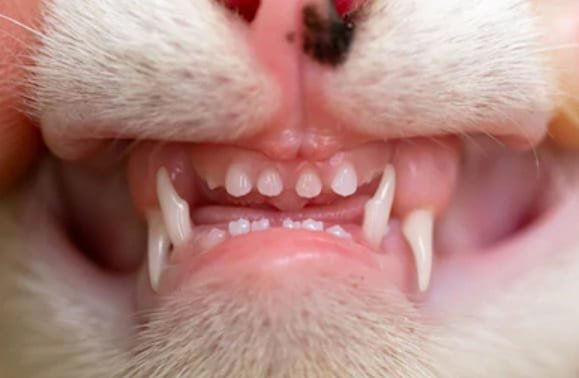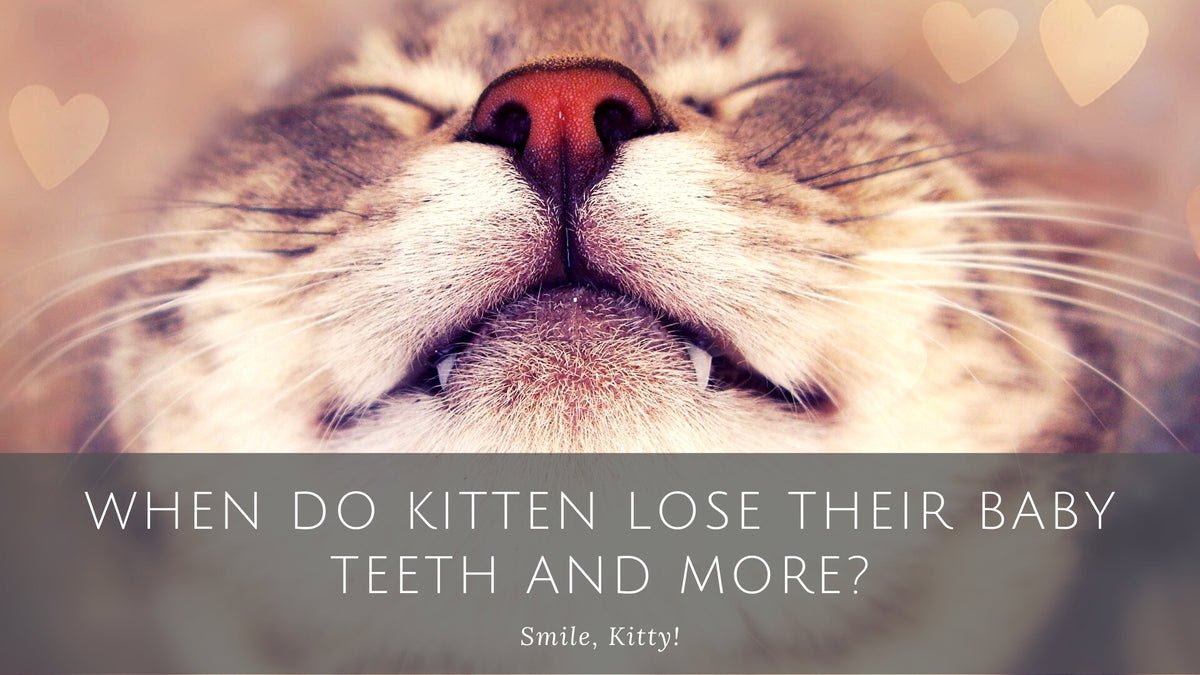About kittens
do kittens lose their teeth
DO KITTENS LOSE THEIR TEETH
The Process of Kitten Teething: What to Expect
Kittens are adorable creatures that bring joy and happiness to any household. As they grow and develop, they go through various stages, including teething. Just like human babies, kittens also lose their baby teeth and grow a new set of adult teeth. This process, known as kitten teething, can be a bit confusing and concerning for new kitten owners. In this article, we will discuss the process of kitten teething and what to expect during this stage of your kitten’s development.
The process of kitten teething typically begins when they are around three to four months old. At this age, their baby teeth, also known as deciduous teeth, start to fall out to make room for their permanent teeth. This process can take several months to complete, and it is entirely normal for kittens to lose their teeth during this time.
The first teeth to fall out are usually the incisors, which are the small teeth at the front of the mouth. These are followed by the canine teeth, also known as fangs, and then the premolars. The molars, which are the larger teeth at the back of the mouth, are usually the last to fall out. By the time your kitten is six months old, they should have all their permanent teeth.
During the teething process, you may notice your kitten chewing on objects more than usual. This is because the pressure of chewing helps to relieve the discomfort caused by the new teeth pushing through the gums. It is essential to provide your kitten with appropriate chew toys to prevent them from chewing on items that could be harmful, such as electrical cords or small objects.
You may also notice your kitten drooling more than usual during this stage. This is because the increased saliva production helps to soothe the gums and make it easier for the new teeth to come through. It is entirely normal for kittens to drool during teething, but if you notice excessive drooling or any other concerning symptoms, it is best to consult your veterinarian.
One of the most common concerns for kitten owners during the teething process is whether their kitten is in pain. While it is natural for kittens to experience some discomfort during teething, it is usually not severe enough to cause them significant distress. However, if you notice your kitten is not eating or drinking, or they seem to be in a lot of pain, it is best to consult your veterinarian for advice.
It is also essential to keep an eye on your kitten’s diet during the teething process. As their baby teeth fall out, they may have difficulty eating their regular food. You can help by providing them with soft or wet food that is easier for them to chew. It is also crucial to continue brushing your kitten’s teeth regularly, even during teething, to maintain good oral hygiene.
Once your kitten has all their permanent teeth, it is essential to start a dental care routine. This includes regular brushing and annual dental check-ups with your veterinarian. Good dental hygiene is crucial for your kitten’s overall health and can prevent dental problems in the future.
In conclusion, kitten teething is a natural and necessary process that all kittens go through. It can be a bit uncomfortable for them, but with proper care and attention, your kitten will get through it with ease. If you have any concerns or notice any unusual symptoms during the teething process, do not hesitate to consult your veterinarian for advice. With proper care, your kitten will soon have a beautiful set of adult teeth and continue to bring joy and happiness to your household.
![]()
When Do Kittens Lose Their Baby Teeth?
Kittens are known for their playful and mischievous nature, but did you know that they also go through a similar teething process as human babies? Just like human infants, kittens are born without teeth and develop their first set of teeth, also known as deciduous or baby teeth, within the first few weeks of their life. These baby teeth play a crucial role in a kitten’s development, but when do they start to lose them? In this article, we will explore the timeline of when kittens lose their baby teeth and what to expect during this process.
The teething process in kittens typically begins around 3-4 weeks of age when their first set of teeth, also known as milk teeth, start to emerge. These tiny teeth are sharp and needle-like, and they help kittens to nurse and transition to solid food. By the time a kitten is 8 weeks old, they should have a full set of 26 baby teeth, which includes incisors, canines, and premolars. These teeth are not as strong as adult teeth and are more prone to damage, which is why it is essential to handle kittens with care during this stage.
As kittens grow and develop, their baby teeth start to loosen and fall out to make room for their permanent teeth. This process is known as teething, and it usually begins when a kitten is around 3-4 months old. The first teeth to fall out are the incisors, followed by the canines and premolars. This process can take several months to complete, and it is entirely normal for kittens to lose their baby teeth at different rates.
During the teething process, kittens may experience discomfort and pain, just like human babies. This can cause them to be more irritable and may lead to changes in their behavior. They may also have a decreased appetite and may be more prone to chewing on objects to relieve the discomfort. As a pet owner, it is essential to provide your kitten with appropriate chew toys to help soothe their sore gums and prevent them from damaging your furniture or belongings.
It is also crucial to keep an eye on your kitten’s mouth during this time. As their baby teeth fall out, you may notice small spots of blood on their toys or in their food. This is normal and should not be a cause for concern. However, if you notice excessive bleeding or your kitten seems to be in severe pain, it is best to consult a veterinarian.
By the time a kitten is 6-7 months old, they should have all their permanent teeth, which includes 30 adult teeth. These teeth are larger and stronger than baby teeth and are designed to last a lifetime. It is essential to take good care of your kitten’s teeth from an early age to prevent dental problems in the future. Regular brushing and dental check-ups are crucial for maintaining good oral hygiene in cats.
In some cases, kittens may retain their baby teeth even after their permanent teeth have come in. This is known as retained deciduous teeth and can cause problems such as overcrowding and misalignment of the permanent teeth. If you notice that your kitten has not lost all their baby teeth by the time they are 7 months old, it is best to consult a veterinarian. They may need to remove the retained baby teeth to prevent any potential dental issues.
In conclusion, kittens start to lose their baby teeth around 3-4 months of age, and the process can take several months to complete. During this time, it is essential to provide them with appropriate chew toys and monitor their mouth for any signs of discomfort or retained baby teeth. By taking good care of your kitten’s teeth from an early age, you can ensure that they have a healthy and happy smile for years to come.
How to Care for Your Kitten’s Teeth During the Teething Stage
As a new kitten owner, it is important to understand the various stages of your kitten’s development and how to properly care for them. One of these stages is the teething stage, where your kitten will begin to lose their baby teeth and grow in their adult teeth. This can be a confusing and sometimes painful time for your kitten, but with proper care, you can help ease their discomfort and ensure their teeth grow in strong and healthy.
The teething stage typically occurs between 3-6 months of age, and it is during this time that your kitten will start to lose their baby teeth. This process is similar to when human babies start to lose their baby teeth and grow in their permanent teeth. However, unlike humans, kittens do not have a set schedule for when their teeth will fall out. It can happen at different times for each kitten, so it is important to keep an eye on their teeth and monitor their progress.
During this stage, your kitten may experience discomfort and pain as their baby teeth loosen and fall out. This can lead to them chewing on objects to relieve the pressure, which can result in damage to your furniture or other household items. To prevent this, it is important to provide your kitten with appropriate chew toys to help soothe their gums. These can include soft rubber toys or even frozen washcloths for them to chew on.
In addition to providing appropriate chew toys, it is also important to monitor your kitten’s diet during this stage. Their gums may be sensitive, so it is best to avoid hard or crunchy foods that may cause them discomfort. Instead, opt for softer foods or even wet food to make it easier for them to eat. You can also try soaking their dry food in water to make it softer and more palatable for them.
As your kitten’s adult teeth start to grow in, it is important to keep an eye on their progress and make sure they are growing in properly. This is also a good time to start introducing them to a toothbrush and toothpaste specifically designed for cats. It is important to never use human toothpaste on your kitten, as it can be toxic to them. Instead, look for toothpaste that is safe for cats and has a flavor they will enjoy, such as chicken or fish.

Brushing your kitten’s teeth may seem like a daunting task, but it is an important part of their dental care routine. Start by gently massaging their gums with your finger to get them used to the sensation. Then, gradually introduce the toothbrush and toothpaste, making sure to use gentle circular motions on their teeth and gums. It is recommended to brush your kitten’s teeth at least 2-3 times a week to maintain good oral hygiene.
In addition to brushing, it is also important to schedule regular check-ups with your veterinarian. They can examine your kitten’s teeth and make sure they are growing in properly. They may also recommend professional dental cleanings if necessary. It is important to address any dental issues early on to prevent them from developing into more serious problems in the future.
In conclusion, the teething stage is a natural and necessary process for your kitten’s development. By providing appropriate chew toys, monitoring their diet, and introducing them to a dental care routine, you can help ease their discomfort and ensure their teeth grow in strong and healthy. Remember to also schedule regular check-ups with your veterinarian to ensure your kitten’s dental health is in good condition. With proper care, your kitten will have a beautiful and healthy set of teeth for years to come.

